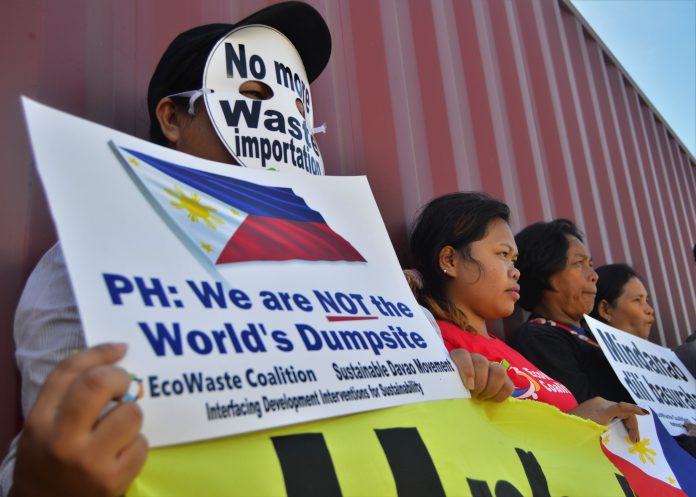The EcoWaste Coalition called on the Philippine government to enforce an international treaty that bans the importation of discarded gadgets.
The group said the production of e-wastes across the world soared to 53.6 million tons in 2019 due to higher consumption of electrical and electronic equipment.
The global generation of e-waste, which is classified as hazardous waste under the Basel Convention, is projected to reach 74.7 million tons by 2030.
Among those classified as electrical and electronic equipment are personal computers, printers, television set, mobile phones, refrigerators, and air-conditioning units.
“The global surge in the production of e-waste is deeply concerning for developing countries like the Philippines that still allow the importation of electronic junks,” said Roxanne Figueroa, EcoWaste Coalition campaigner.
“We need to be extra vigilant against the potential rise in shipments of pre-owned electronics nearing or at the end of their useful lives, which can only add to our toxic waste woes,” Figueroa added.
Last year, the Bureau of Customs in northern Mindanao uncovered 2.56 tons of smashed electronic trash from Hong Kong, wrongfully declared as assorted electronic accessories.
The coalition said a considerable amount of e-waste is still exported illegally or under the guise for reuse or pretending to be scrap metal.
The World Health Organization has noted that children’s health are being affected by e-wastes, with one in four of them dying from avoidable environmental exposures.
Thony Dizon, EcoWaste Coalition chemical safety campaigner, said this environmental problem can be addressed once the government ratify the Basel Ban Amendment.
“To put a stop to the entry of e-waste and other wastes into our country and to protect public health and the environment, we need to plug loopholes in regulation and ratify the Basel Ban Amendment, an international law prohibiting all hazardous waste exports from developed to developing countries,” he said.
He said such a bold action will encourage developed countries not to transfer their unwanted e-waste in the country.
Last year, the group proposed a comprehensive ban on the importation of wastes, including plastic and electronic wastes, which is still permitted by the government.
The Philippines still allows the importation of “recyclable materials” such as scrap metals, scrap plastics, electronic assemblies and scrap, used oil, and fly ash subject to certain limiting conditions.









